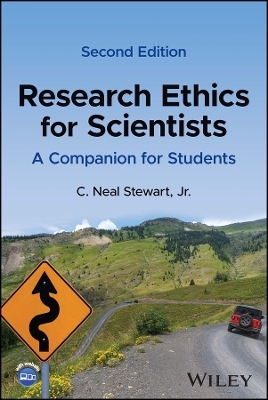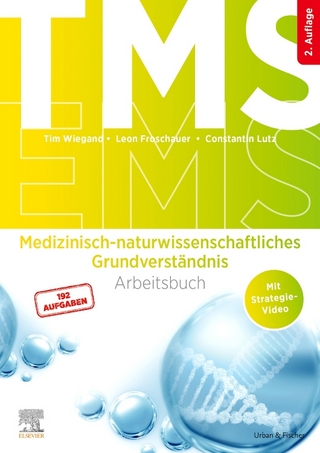
Research Ethics for Scientists
John Wiley & Sons Inc (Verlag)
978-1-119-83788-6 (ISBN)
As the number of scientific journals, government regulations, and institutional guidelines continue to grow, research scientists are increasingly facing ethical dilemmas. Even seasoned and honest scientists can unintentionally commit research misconduct or fail to detect and address intentional misbehavior.
Research Ethics for Scientists is an authoritative “how-to” guide that clearly outlines best practices in scientific research. Critically examining the key problems that arise in research management and practice, this real-world handbook helps students and young scientists conduct scientific research that adheres to the highest ethical standards. Accessible chapters, logically organized into functional themes and units, cover all the major areas that are crucial for sustained success in science: ideas, people, data, publications, and funding.
The second edition offers new and updated content throughout, including discussions of recent innovations to detect and adjudicate research misconduct, vulnerabilities in research practices that were exposed by the COVID-19 pandemic, and new methods people are using to cheat the system and skew the peer review process. Entirely new case studies focus on harassment and bullying in training and mentorship, anti-science and pseudoscience, equality and equity issues, the fabrication of data, and more. This edition integrates gender, race, student training, and other important social issues throughout.
Presents up-to-date coverage of growing issues such as the ethics of rushing to publish
Discusses the use of text-similarity detecting software to reveal plagiarism and image analysis techniques for detecting data and image manipulation
Features new material on current trends such as universal open access (OA) publishing, increased research metrics, new models for peer review, working for multiple employers, and “shadow labs” for individual scientists
Includes access to a companion website with PowerPoint slides of case studies and figures
Written by an experienced researcher and PhD mentor, Research Ethics for Scientists: A Companion for Students, Second Edition is an indispensable resource for graduate students, postdoctoral researchers, early-career professors, and scientists involved in teaching scientists-in-training.
C. Neal Stewart, Jr. is Ivan Racheff Chaired Professor of Plant Molecular Genetics, Department of Plant Sciences, University of Tennessee, USA. He teaches a graduate-level research ethics course that focuses on best practices in research that are portable among different areas of biology, medicine, and agriculture.
Preface xi
Acknowledgments xii
About the Companion Website xiii
Chapter 1 Research Ethics: The Best Ethical Practices Produce the Best Science 1
Judge yourself 6
Morality vs. ethics 6
Onward and upward 8
Inauspicious beginnings 8
How science works 10
Nothing succeeds like success 13
Summary 14
Chapter 2 How Honest Is Science? 15
Judge yourself 16
Sanctionable research misconduct: fabrication, falsification, and plagiarism 16
“Scientists behaving badly” 17
Do scientists behave worse with experience? 20
Judge yourself 20
Crime and punishment 21
Judge yourself 25
Discussion questions 27
Summary 28
Chapter 3 Research Misconduct: Plagiarize and Perish 29
Ideas 31
Sentences 32
Phrases 32
A hoppy example 33
What is plagiarism, really? 34
Judge yourself 34
How many consecutive identical and uncited words constitute plagiarism? 35
Self- plagiarism and recycling 36
Judge yourself 37
Judge yourself 44
Tools to discover plagiarism 46
iThenticate 46
References cited 48
Self- plagiarism and ethics revisited 51
Judge yourself 51
Is plagiarism getting worse? 52
The [true] case study: the plagiarizing novelist who also plagiarized her confession to plagiarism and the author of the website “Plagiarism Today” 54
Summary 55
Chapter 4 Finding the Perfect Mentor 56
Caveat 57
Choosing a mentor 58
Judge yourself 62
Choosing a graduate project 69
Judge yourself 69
Mentors for assistant professors 69
How to train your mentor 75
Discussion questions 78
Discussion questions 80
Summary 81
Chapter 5 Becoming the Perfect Mentor 82
Grants and contracts are a prerequisite to productive science 84
Judge yourself 85
Publications are the fruit of research 86
On a personal level 87
Judge yourself 88
Common and predictable mistakes scientist make at key stages in their training and careers and how being a good mentor can make improvements 88
Discussion questions 104
Summary 105
Chapter 6 Research Misconduct: Fabricating Data and Falsification 106
Why cheat? 107
Judge yourself 110
The case of Jan Hendrik Schön, “Plastic Fantastic” 110
The case of Woo- Suk Hwang: dog cloner, data fabricator 111
The case of Diederik Stapel, psychological serial fabricator 113
Judge yourself 114
Detection of image and data misrepresentation 116
Judge yourself 120
Lessons learnt 121
Summary 121
Chapter 7 Research Misconduct: Falsification and Whistleblowing 122
Reporting and adjudicating research misconduct 123
A “can of worms” indeed: the case of Elizabeth “Betsy” Goodwin 125
Judge yourself 128
Judge yourself 129
Judge yourself 131
Judge yourself 137
Judge yourself 140
Cultivating a culture of openness, integrity, and accountability 140
Summary 141
Chapter 8 Publication Ethics of Authorship: Who Is an Author on a Scientific Paper and Why 142
The importance of the scientific publication 143
Predatory publishing 145
Judge yourself 146
Who should be listed as an author on a scientific paper? 146
Judge yourself 150
How to avoid authorship quandaries and disputes 151
Authorship for works other than research papers 153
The difference between authorship on scientific papers and inventorship on patents 154
Other thoughts on authorship and publications 155
Judge yourself 157
Summary 162
Chapter 9 Grant Proposals: Ethics and Success Intertwined 163
Why funding is crucial 164
Judge yourself 168
Path to success in funding 168
Fair play and collaboration 170
Judge yourself 171
Judge yourself 173
Recordkeeping and fiscal responsibility 173
Pushing the limits on proposals 174
Summary 179
Chapter 10 Peer Review and the Ethics of Privileged Information 180
The history of peer review 181
The nature of journals and the purpose of peer review 182
Open- access journals vs. subscription journals 182
Which papers to review? 188
Open reviews and discussion 189
Judge yourself 190
Grant proposals 190
Confidentiality and privileged information 191
Reviewers 192
Judge yourself 192
Final thoughts 193
Summary 195
Chapter 11 Data and Data Management: The Ethics of Data 196
Stewardship of data 197
Judge yourself 199
Judge yourself 204
Judge yourself 208
The land of in- between: ethics of data presented at professional meetings 208
Judge yourself 213
Raw data, processed data, and data analysis: ways to go right and wrong 213
Summary 213
Discussion questions 215
Discussion questions 216
Chapter 12 Conflicts of Interest 217
The dynamic landscape of conflicts of interest 218
Potential conflicts of interest for university scientists 219
Judge yourself 226
Conflicts of interest within labs or universities 226
Judge yourself 228
Discussion questions 232
Discussion questions 237
Summary 238
Chapter 13 What Kind of Research Science World Do We Want? 239
A culture of discipline and an ethic of entrepreneurship 241
Judge yourself 243
Too much pressure? 243
Integrity awareness through ethics education 246
Accountability 246
Truth will win 247
We scientists 248
Summary 249
References 250
Index 256
| Erscheinungsdatum | 05.08.2023 |
|---|---|
| Verlagsort | New York |
| Sprache | englisch |
| Maße | 152 x 229 mm |
| Gewicht | 397 g |
| Themenwelt | Medizin / Pharmazie ► Medizinische Fachgebiete |
| Medizin / Pharmazie ► Studium ► 1. Studienabschnitt (Vorklinik) | |
| Naturwissenschaften ► Biologie | |
| Naturwissenschaften ► Chemie | |
| ISBN-10 | 1-119-83788-X / 111983788X |
| ISBN-13 | 978-1-119-83788-6 / 9781119837886 |
| Zustand | Neuware |
| Informationen gemäß Produktsicherheitsverordnung (GPSR) | |
| Haben Sie eine Frage zum Produkt? |
aus dem Bereich


